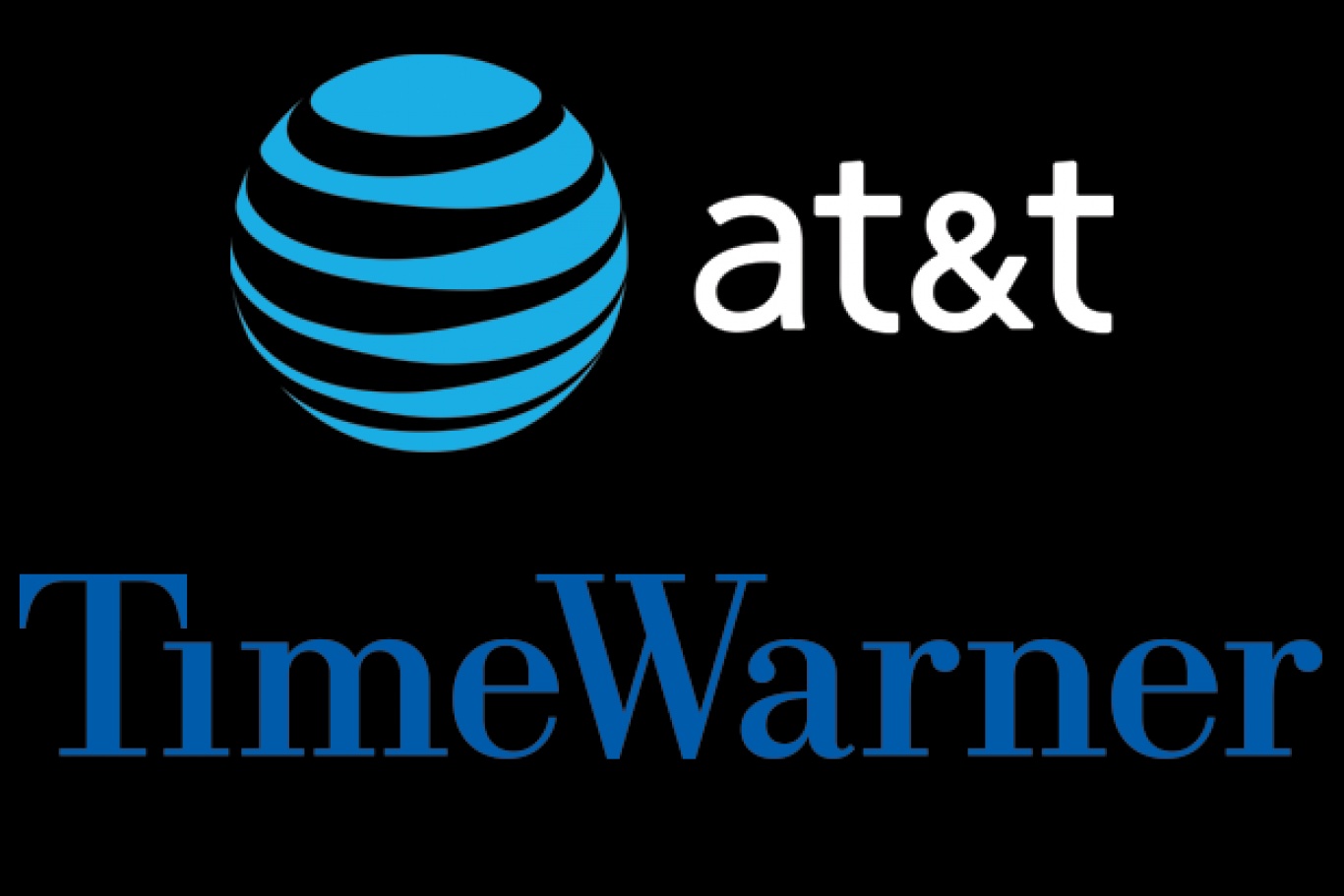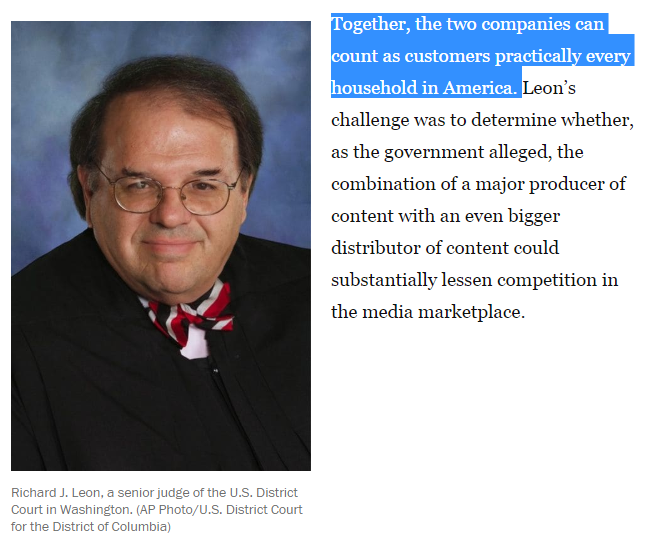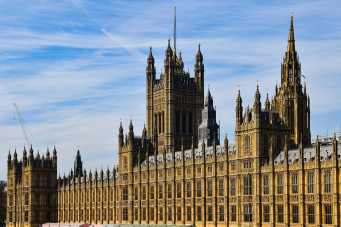
AT&T completes acquisition of Time Warner Inc.
A US federal judge has ruled in favour of AT&T’s proposed acquisition of Time Warner.
The decision, described as an “embarrassing defeat” for the US Department of Justice, paves the way for a merger without any conditions, with big ramifications for the industry.
The $85 billion takeovers was announced in October 2016, and Richard J. Leon, a senior judge of the US District Court in Washington, ruled that the justice department was unable to prove that it would harm competitors through fewer choices and higher prices for television and internet services.
He described one of the government’s arguments as “gossamer thin” and urged it not to challenge his ruling.

(Source)
Why the merger?
Traditional media businesses are under huge and growing pressure from technology companies such as Amazon, Facebook, Apple, Google and Netflix who have:
- Pots of cash to invest in content creation
- Vast troves of data about their users
- Profitable and dominant advertising platforms
- Married content creation with streaming via relatively simple, ‘over the top’ distribution
- Global reach via apps in homes and on mobile devices
- Enjoyed enormous success
Why did the US government try to block it?
Time Warner and AT&T argued that the deal would allow them to compete more effectively against those big tech companies.
But the government said the merger would “greatly harm American consumers”, the justice department didn’t want competition reduced and people to pay too much to watch TV.
There is also the suggestion in some quarters that the legal challenge was motivated by something else: President Trump’s dislike of CNN, Time Warner’s left-leaning news network.
The justice department’s anti-trust chief, Makan Delrahim, swore to the court that he had not been influenced by the White House, and Judge Leon stopped the companies from introducing evidence about possible political interference.
What the deal brings together
Most Americans know AT&T as a mobile-phone service provider but the deal brings together huge assets including several global media and entertainment brands, a $282 billion empire spanning television, film, broadband, mobile and fixed-line telecoms:
- Warner Bros. Pictures, one of the ‘Big Six’ major American film studios and owner of the Harry Potter brand
- HBO, whose library includes Game of Thrones
- Turner Broadcasting System
- The CW
- Warner Bros.
- CNN
- DC Comics
- A 10% stake in Hulu
- Live sports broadcasting rights (including MLB, NBA and NCAA)
- Nationwide distribution through wireless and satellite television services
Why was this case so closely watched?
This case was closely watched because the decision to sue to block the merger broke with convention.
Deals such as this one, in which the two companies are in related industries but do not produce competing products – ‘vertical mergers’ – are usually approved by federal regulators.
‘Horizontal integration’ – when companies buy their competitors – is often blocked.
Judge Leon’s decision was aligned with conventional thinking.
‘Leon is a master scoundrel’
Clearly, not everyone’s happy.
The Washington Post, owned by Amazon’s founder, Jeff Bezos, wrote in How Judge Leon blew it with U.S. v AT&T that “[Judge] Leon was not up to the task”, describing him as “a master scoundrel”.
Now what?
The decision is expected to unleash a wave of corporate takeovers and enables the latest effort by a big telecom or cable company to acquire media assets.
AT&T had already bought DirecTV, making AT&T America’s largest pay-TV provider, with more than 26 million total subscribers.
Comcast owns NBCUniversal, Verizon owns websites including Yahoo and HuffPost, and this latest ruling clears the way for more huge mergers and acquisitions in America, as it effectively signals a shift towards a favourable environment in the US legal system.
Comcast said that it was preparing a “superior” offer to buy 21st Century Fox pending the latest ruling and has since followed up on that promise, making a cash bid of $65 billion, challenging Disney’s stock-based offer of $52.4 billion, which Fox had accepted.
It’s not out of the question that the two giants might split Fox’s assets, nor is it impossible that the justice department would appeal any such ruling.
Also, T-Mobile is seeking to acquire its rival mobile-service provider, Sprint.
AT&T’s merger will, according to one analyst, change how we watch TV.

How the Employment Rights Act 2025 Is Reshaping the Freelance Market

Umbrella Company Reforms - An Overview
